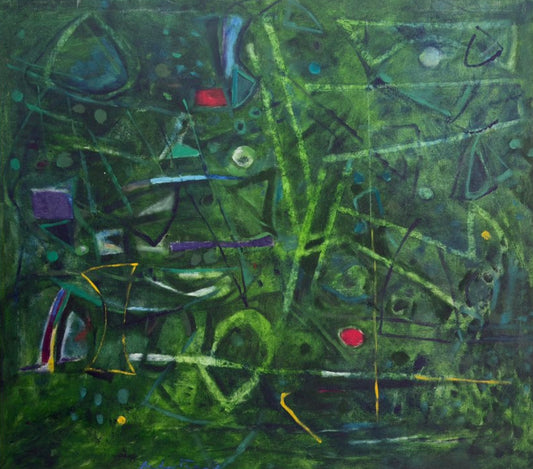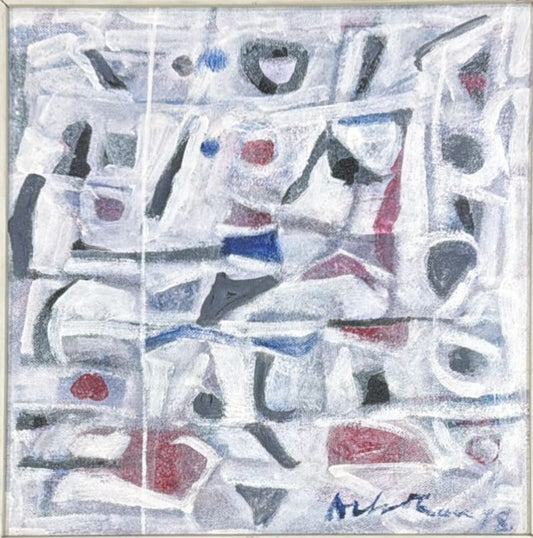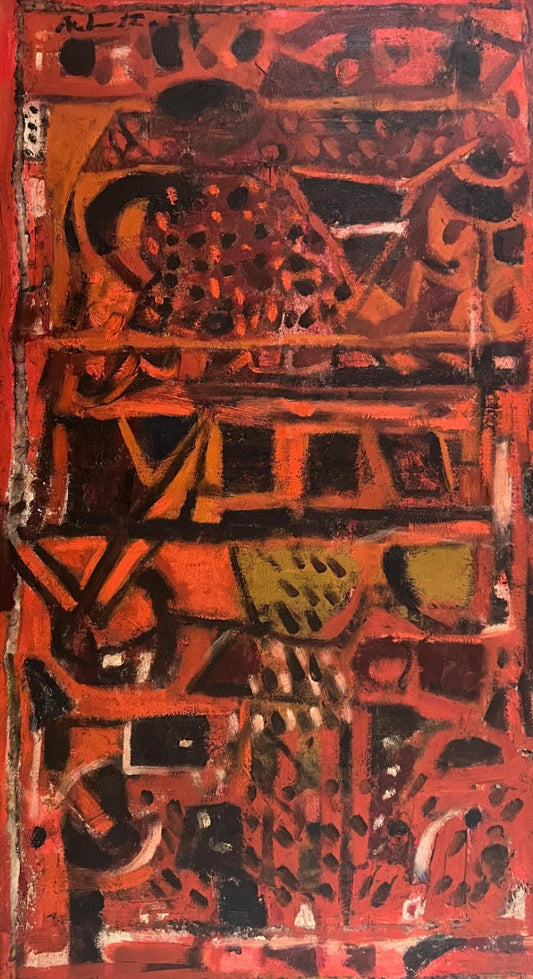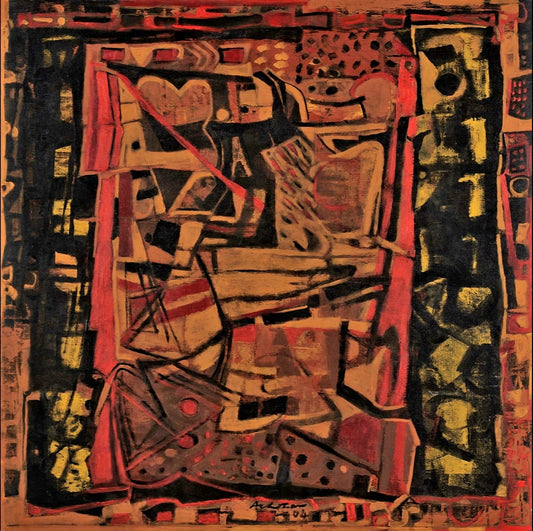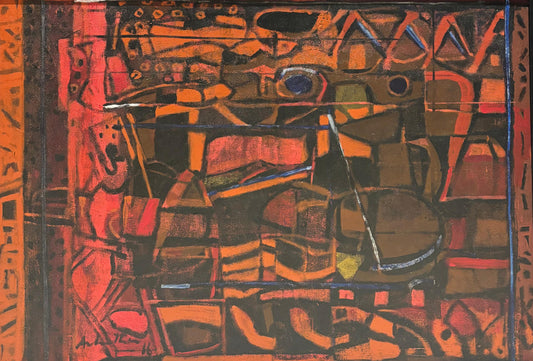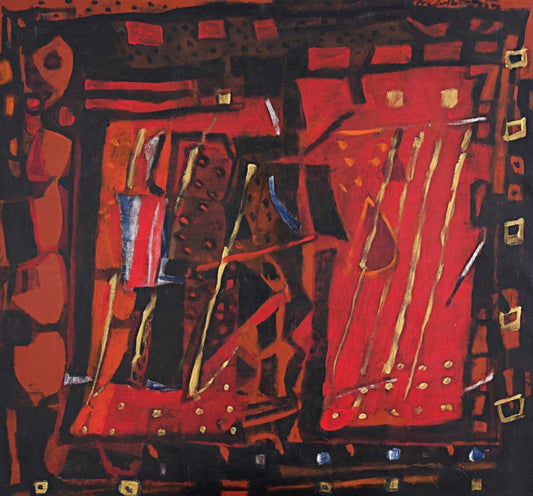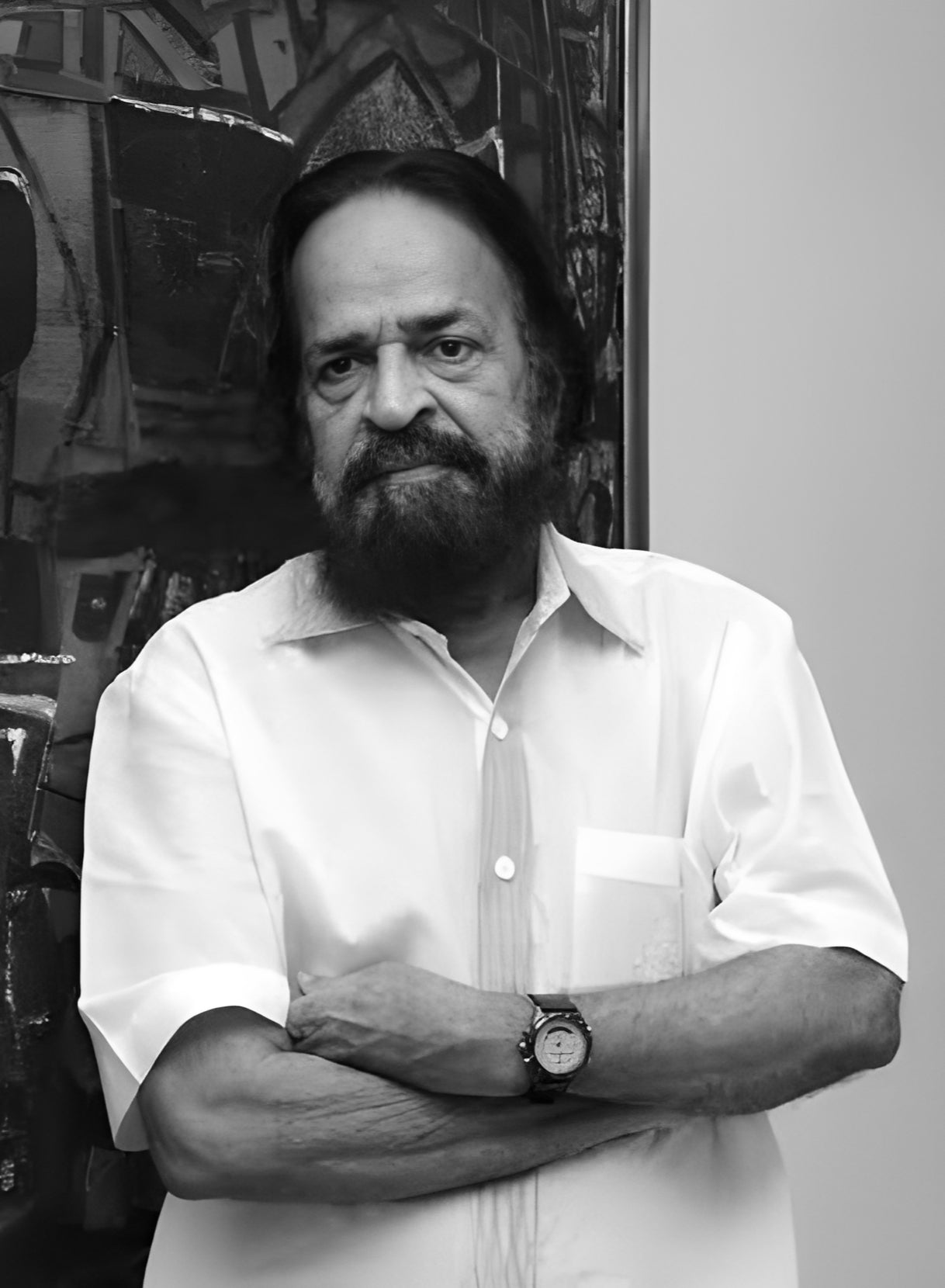
ACHUTHAN KUDALLUR
Achuthan Kudallur’s canvases are luminous terrains, vibrant fields of color where emotion, memory, and nature converge with quiet force. Known for his instinctive handling of chroma, Kudallur was a self-taught colorist whose bold, often fiery palettes defined a singular voice in Indian abstraction. His celebrated red paintings, charged with pulses of blue, yellow, or green, are not declarations but meditations, allowing color to breathe, throb, and settle across the surface like a living organism. In his hands, abstraction became not a retreat from the world but a deeply personal engagement with it, through form, hue, and the shifting weight of silence.
Born in 1945 in the village of Kudallur in Palakkad, Kerala, the artist’s early life was shaped by the rivers Bharathapuzha and Kunthipuzha. These flowing waters and the surrounding landscape formed an internal rhythm that would later animate his work. Though trained as a civil engineer, Kudallur’s turn to painting came through evening classes at the Madras Art Club, then part of the Government College of Fine Arts in Chennai. By the late 1960s and early 1970s, he had decisively moved away from figuration, becoming a central voice within the Madras Art Movement.
Kudallur’s abstraction was grounded not in theory but in experience. His canvases emerged through intuitive layering and erasure, their surfaces often suggesting geological time or inner cartographies. Critics have noted the tension within his works, the dynamic push and pull between saturated intensity and compositional calm. Yet there is no chaos here; each gesture is precise, each field of color purposeful. For Kudallur, painting was an act of inward listening. His contributions were widely recognized. He received the Tamil Nadu Lalit Kala Akademi Award in 1982 and the National Academy Award in 1988. He represented India at the Bhopal Biennale, the 7th Triennale in New Delhi (1991), and the Third Asian Art Show in Fukuoka, Japan. His works are held in significant public and private collections, including the National Gallery of Modern Art, New Delhi, and the Glenbarra Art Museum, Japan.
Despite his quiet nature, Kudallur was a generous mentor. He supported many emerging artists, offering guidance and encouragement without fanfare. His retrospective, Achuthan Kudallur: A Life in Art, held at Chennai’s Lalit Kala Akademi in 2024, mapped his trajectory from early figuration to powerful abstraction, affirming his place as one of India’s most compelling modern voices.


